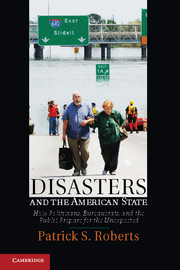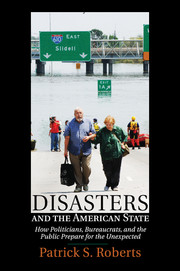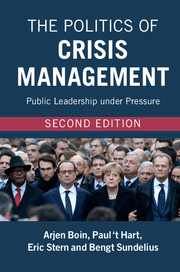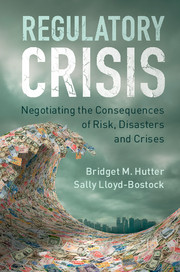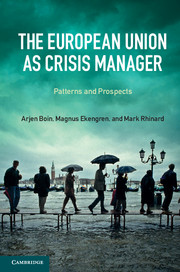Governing after Crisis
The constant threat of crises such as disasters, riots and terrorist attacks poses a frightening challenge to Western societies and governments. While the causes and dynamics of these events have been widely studied, we know little about what happens following their containment and the restoration of stability. This volume explores 'post-crisis politics,' examining how crises give birth to longer term dynamic processes of accountability and learning which are characterised by official investigations, blame games, political manoeuvring, media scrutiny and crisis exploitation. Drawing from a wide range of contemporary crises, including Hurricane Katrina, 9/11, the Madrid train bombings, the Walkerton water contamination, Space Shuttles Challenger and Columbia and the Boxing Day Asian tsunami, this is a ground-breaking volume which addresses the longer term impact of crisis-induced politics. Competing pressures for stability and change mean that policies, institutions and leaders may occasionally be uprooted, but often survive largely intact.
- An analysis of what happens 'after' crisis to policies, institutions and political leaders
- The contributors provide a unique multidisciplinary perspective on crisis management drawing from political science, social psychology, public administration, public policy, international relations, organisation theory and disaster sociology
- Contains detailed case studies of some of the most devastating and high-profile crises in recent years, including 9/11, Hurricane Katrina, and the Space Shuttle Challenger and Columbia disasters
Reviews & endorsements
"Too many are unprepared to handle crisis; still more are ignorant of post-crisis dynamics. This book allows us to understand the issues involved and to choose the appropriate roadmaps in the post-event phase. Do not miss these illuminating case studies: they could - tonight or tomorrow - tip the balance between fiasco and success."
Patrick Lagadec, Director of Research, Ecole Polytechnique, Paris
"This volume laudably focuses on a relatively neglected topic: the specifically political dimensions of crisis and disasters. The authors also make a good case that political elites and organizations - more than citizens - have to be held accountable for their behavior, since they are the locus of pre-crisis policy decisions. Another worthwhile emphasis is on the differential effects of crisis management on politicians and public officials."
E. L. Quarantelli, Professor Emeritus, Disaster Research Center, University of Delaware
"This is an excellent edited volume on post-crisis politics and governance...Highly recommended" --Choice
Product details
February 2008Paperback
9780521712446
338 pages
230 × 150 × 15 mm
0.46kg
6 b/w illus.
Available
Table of Contents
- 1. Governing after crisis Arjen Boin, Allan McConnell and Paul 't Hart
- Part I. Crisis-Induced Accountability:
- 2. Weathering the politics of responsibility and blame: the Bush administration and its response to hurricane Katrina Thomas Preston
- 3. A reversal of fortune: blame games and framing contests after the 3/11 terrorist attacks in Madrid José A. Olmeda
- 4. Flood response and political survival: Gerhard Schröder and the 2002 Elbe flood in Germany Evelyn Bytzek
- 5. The politics of tsunami responses: comparing patterns of blame management in Scandinavia Annika Brändström, Sanneke Kuipers and Pär Daléus
- 6. Dutroux and dioxin: crisis investigations, elite accountability and institutional reform in Belgium Sofie Staelraeve and Paul 't Hart
- Part II. Crisis-Induced Policy Change and Learning:
- 7. The 1975 Stockholm embassy seizure: crisis and the absence of reform Dan Hansén
- 8. The Walkerton water tragedy and the Jerusalem banquet hall collapse: regulatory failure and policy change Robert Schwartz and Allan McConnell
- 9. Learning from crisis: NASA and the Challenger disaster Arjen Boin
- 10. September 11 and post-crisis investigation: exploring the role and impact of the 9/11 commission Charles F. Parker and Sander Dekker
- 11. Conclusions: the politics of crisis exploitation Arjen Boin, Paul 't Hart and Allan McConnell.


